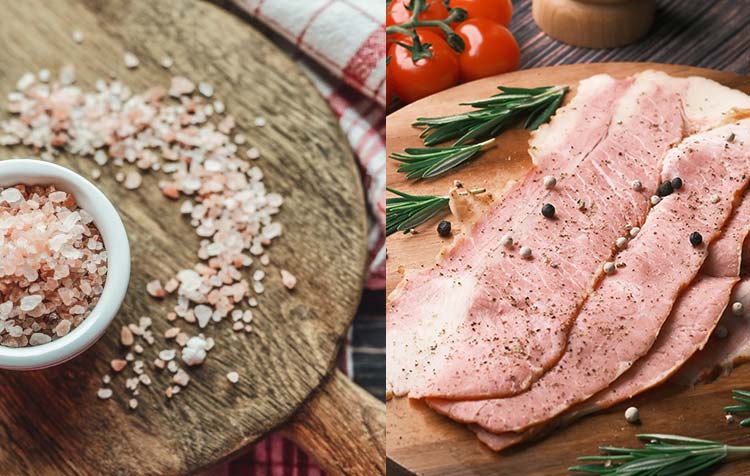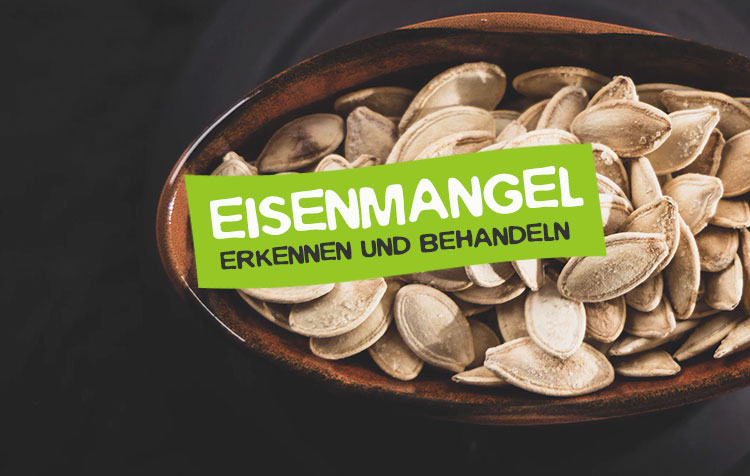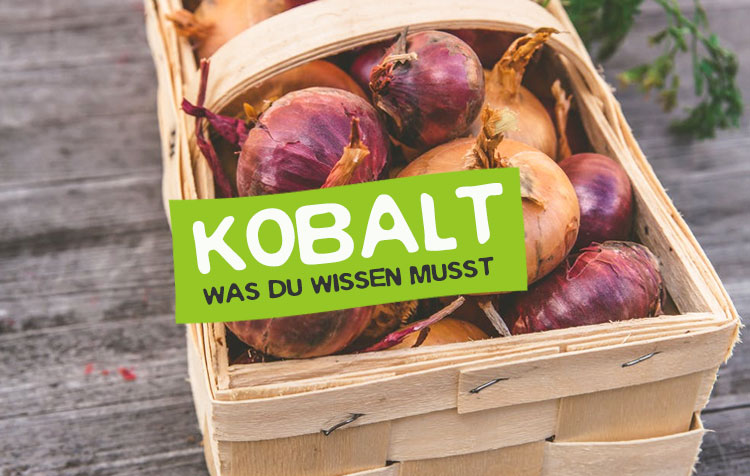You want to learn more about chloride? In this article, I will give you the most important facts about the vital quantity element. Starting with a short profile, about the intake, intake recommendations, function, risk of overdose or deficiency to chloride-containing foods. At the end of the article you will also find valuable information on plant-based nutrition, dietary supplements and answers to the most frequently asked questions.
Here is in advance a short Overview for you:
- Profile
- Recording
- Daily requirement
- Meaning
- Overdose
- Deficiency
- Foods
- Zufuhroptimierung
- Vegan
- Food supplement
- FAQ
Notice: This article is not a substitute for medical advice, but merely provides general information about chloride. Please see your doctor if you feel unwell or want to prevent health problems with medical care.
Chloride PROFILE at a glance
Assignment: Quantity element
Important for: Regulation of electrolyte, water and acid-base balance, component of gastric juice1
Daily requirement: 2,300-3,100 mg/day from the age of 15.2,3
Recording: through food intake, mainly salt
Overdose: Maximum intake recommendation of the FNB 3,600 mg/day4 Some other authorities have not set a maximum feed1,2,3
Deficiency symptoms: e.g. too low blood pressure, cardiac arrhythmia, increased pH-value
Sources: Salt and processed foods high in salt
Nutritional supplement: redundant
How you supply yourself with chloride
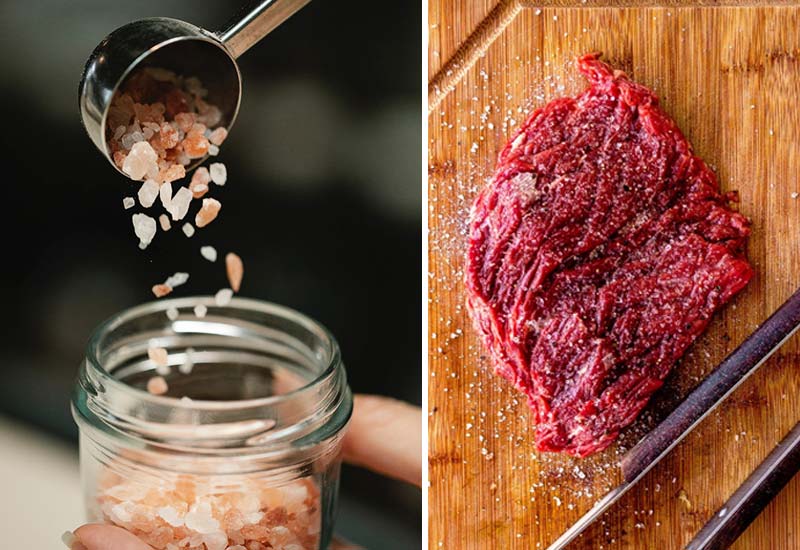
Together with Sodium chloride forms the Sodium chloridewhich most people also know as table salt. Since meals in our latitudes are salted a lot, most people consume more chloride as well as sodium than necessary. In addition, our body metabolizes the bulk element very efficiently, since salt played no role in the primeval diet.1,5,6
Chloride is a water-soluble bulk elementwhich is excreted via the kidneys. In order not to place an excessive burden on the excretory organ, it is generally sensible to Chloride supply at reduce.
Daily chloride requirement
Compared to the usual minimum recommendations, chloride is an estimate that defines an adequate intake. The Institute of Medicine also recommends an intake of 2,300 mg per day for younger adults, 2,000 mg per day for older adults, and 1,800 mg per day for seniors.7 The European Food Safety Authority (EFSA) defines a higher intake of 3,100 mg of chloride per day.3,8
From the German Society for Nutrition (DGE) an intake of 2,300 mg of chloride per day is recommended from the age of 15. The values for Pregnant and breastfeeding women remain the same.2,9 The table below shows the recommended estimated values for Children and teenagers contain
| Children and teenagers | Recommended intake in mg | |
| 1 to under 4 years | 600 | |
| 4 to under 7 years | 750 | |
| 7 to under 10 years | 1.150 | |
| 10 to under 13 years | 1.700 | |
| 13 to under 15 years | 2.150 |
How does chloride benefit the body?
Chloride influences together with Calcium, Potassium and Sodium the Water balance. Together with sodium, the bulk element plays an important role in the regulation of the Blood pressure. Furthermore, it influences the Electrolyte and acid-base balance, as well as various enzymatic processes. It is also an important component in the formation of gastric juice.1,9
The Chloride functions summarized:
- Control of the water balance
- Regulation of blood pressure
- Control acid-base balance
- Component of gastric juice
- Influence on enzymatic processes
Can chloride be overdosed?
Since chloride usually occurs together with sodium in the diet, it is difficult to separate the effects of the two minerals. Since from chloride itself No immediate toxic effect neither the DGE nor the EFSA has specified a maximum intake.1,3,8
The main problem of regular excessive chloride intake is increased blood pressure, as well as the risk of Consequential diseases through chronic Hypertension. Therefore the Institute of Medicine a Maximum intake of 2,300 mg chloride per day was set. This is just about as high as the Institute's recommendation and even lower than the one set by the EFSA recommended intake.7 Another intake limit - to 3,600 mg of chloride per day - was set by the Food and Nutrition Board set.4
Can there be an undersupply?
Due to the high consumption of salt in industrialized countries, a chloride deficiency is Very rare. With the regular use of diuretics or high sweat losses due to physical stress or extreme heat, in rare cases there may be an increased need and therefore more likely to be a chloride deficiency.7 Another factor for increased chloride intake is diarrhea or vomiting. A chloride deficiency is basically manifested by Symptoms such as low blood pressure, cardiac rhythm disturbances, or an elevated blood pH.1
What contains a lot of chloride?
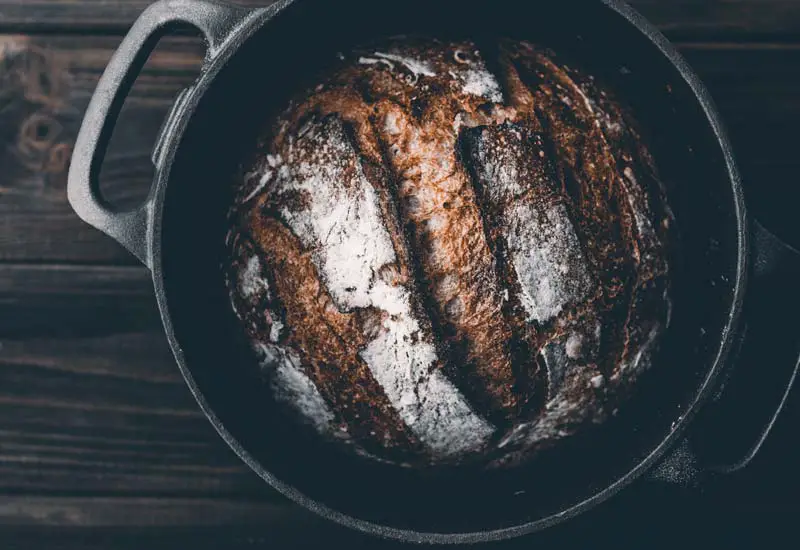
Chloride is conventionally ingested as sodium chloride (i.e. table salt). This makes up by far the largest part of the chloride intake in the population, and since we consume an average of 8 to 11 grams of table salt per day, this comes to an average of 4.8 to 6.6 grams of chloride per day. This is more than twice the recommended intake.1,2,3,7
In order to regulate your intake, it is good to know which foods contain particularly high levels of chloride. Table salt is mainly found in Bread, Finished products, sausage, cheese and Meat, especially cured, smoked or otherwise processed meat products contain. Accordingly, you should keep an eye on the intake of these products and reduce it.
Effectively limit chloride consumption
To avoid high blood pressure and related secondary diseases, you can reduce your consumption of Reduce salty, processed, refined and meat-containing foods. Instead, you should become more Fruit and vegetables grip, since this much Potassium contains. Because the mineral can reduce the negative effects of sodium and chloride.
To reduce your salt consumption as easily as possible, you can, for example, replace table salt with (homemade) celery salt and use lots of fresh or dried herbs. If you buy ready-made products, keep an eye on the salt content. You can also Legumes or Meat substitutes to use your Reduce meat consumption.9,10
What should vegans pay attention to?
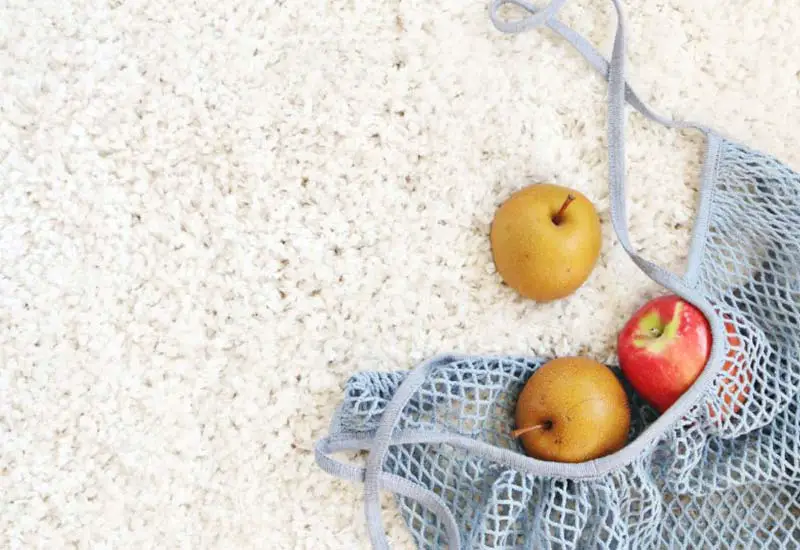
Since a plant-based diet usually contains more fruits and vegetables, and obviously no meat, a vegan lifestyle better for reducing your salt intake than a mixed diet.
The DGE has chloride not as a potentially critical nutrient classified in vegan diet.11 Consequently, as a vegan, you generally don't have to worry about possibly consuming too little chloride. In fact, you can rejoice because you probably have a healthier salt intake than most people.
Are chloride supplements useful?
Supplements with chloride are not usually necessary because meals are liberally salted in our Western diet.
Sodium FAQ: The most frequently asked questions
What does chloride do in the body?
Chloride is an essential nutrient and is needed for the regulation of water balance, acid-base balance and blood pressure.
How much chloride per day?
An intake of 2,300 mg of chloride per day, or about 4 grams of salt, is recommended.
How much sodium do you need per day?
According to various nutrition societies, an adult person needs about 1,500-2,000 mg of sodium per day.
Which foods contain a lot of chloride?
Chloride is mainly found in table salt and products that contain a lot of table salt. These include processed products, meat, especially sausage, smoked or cured meat products.
How can I eat a low chloride diet?
For a low-chloride diet, you can limit the consumption of table salt, convenience foods and meat products and eat more fruits and vegetables. Optionally, you can also use celery salt instead of conventional salt.
Chloride - less is more
In western industrialized countries, too much chloride is usually ingested through food. You are therefore better served with a conscious reduction. This goal can be achieved primarily through a wholesome, vegan diet and the reduced consumption of processed foods.
In addition to eating a vegan diet, you can also increase your healthy lifestyle still around beneficial measures, such as Forest bathing or Cold showers, to complement you in the sense of Salutogenesis to take care of your health on your own responsibility.
If I have left a question about chloride unanswered, feel free to leave me a comment.
All the best,

PS.: If you want to know even more about a healthy diet, then you could read the posts on Iodine or Iron be right for you.
References:
1 Deutsche Gesellschaft für Ernährung e. V.: Selected questions and answers on chloride, https://www.dge.de/wissenschaft/faqs/chlorid. [04.01.2022].
2 Deutsche Gesellschaft für Ernährung e. V.: Chloride, https://www.dge.de/wissenschaft/referenzwerte/chlorid/?L=0 [04.01.2022].
3 European Food Safety Authority: reference values for sodium and chloride intakes - your views on draft opinions, https://www.efsa.europa.eu/de/press/news/190403 [04.01.2022].
4 Food and Nutrition Board: Dietery Reference Intakes, Tolerable Upper Intake Levels, https://www.nal.usda.gov/sites/default/files/fnic_uploads//UL_vitamins_elements.pdf. [04.01.2022].
5 Center of health: Determine mineral deficiency: Diagnosis, https://www.zentrum-der-gesundheit.de/krankheiten/weitere-erkrankungen/mangelerscheinungen/mineralstoffmangel. [04.01.2022].
6 European Food Safety Authority: EFSA advises on adverse effects of sodium, https://www.efsa.europa.eu/de/news/efsa-provides-advice-adverse-effects-sodium. [04.01.2022].
7 Institute of Medicine of the National Academies: Dietary Reference Intakes for Water, Potassium, Sodium, Chloride, and Sulfate, https://www.nap.edu/read/10925/chapter/1. [04.01.2022].
8 European Food Safety Authority: Dietary reference values for chloride, https://efsa.onlinelibrary.wiley.com/doi/epdf/10.2903/j.efsa.2019.5779. [04.01.2022].
9 Deutsche Gesellschaft für Ernährung e. V.: DGE updates reference values for sodium, chloride and potassium, https://www.dge.de/presse/pm/dge-aktualisiert-die-referenzwerte-fuer-natrium-chlorid-und-kalium. [04.01.2022].
10 Centers for Disease Control and Prevention: Sodium Q&A, https://www.cdc.gov/salt/sodium_QandA.htm. [04.01.2022].
11 Deutsche Gesellschaft für Ernährung e. V.: Supplement to the position of the German Nutrition Society regarding population groups with special nutritional needs, https://www.dge.de/wissenschaft/weitere-publikationen/dge-position/vegane-ernaehrung/?L=0 [04.01.2022].

